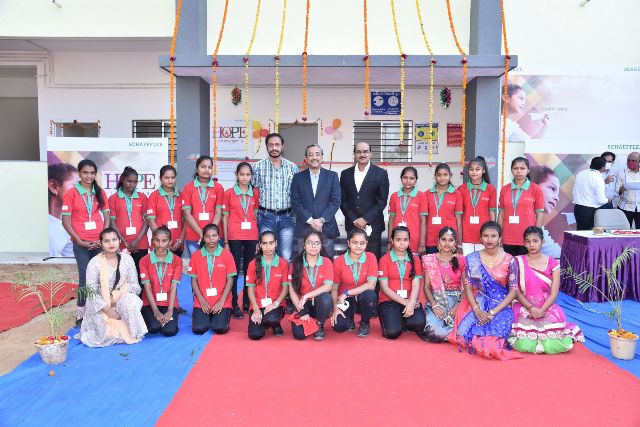We will agree that the year 2020 has been a roller-coaster ride for all businesses. While COVID – 19 created challenges for businesses, it also revealed the ‘human side’ of large and small enterprises alike. 2020 saw an unprecedented alignment in business and ESG agendas. Moving forward, 2021 will be recognized as the year when ESG will not only be a mandate but will merge with the DNA of businesses. Here are the top trends that are likely to be followed by businesses to operate in more socially responsible and sustainable ways:
Environmental, Social and Corporate Governance (ESG) now a business imperative
Though, ESG practices are now widely accepted as the norm for companies, in 2021, enterprises’ ESG initiatives will gain more prominence and affect their corporate performance. Good ESG practices will not only be defined by CSR initiatives but also by how environmentally and socially conscious businesses are being built. Through ESG, the companies will be able to integrate better environmental, social and governance strategies into their DNA, create an impact that benefits everyone and create shared value for stakeholders and society at large. Such an cohesive approach is not just the need of the hour, but will also be a vital element that ensures long-term sustainability.
Resilience in climate change- aiming for Net Zero carbon emissions
2021 will see companies prioritizing carbon emissions reduction. In 2020, both manufacturing and services companies took big steps in this direction and are continuing to do so. Many manufacturing companies have installed Environmental Management Systems and taken various initiatives such as continuous load monitoring, HVAC optimization, regulation of auxiliaries in the captive power plants, use of device components made of lite alternatives, and significant capital investment on energy conservation systems and renewable energy among others. This year will witness businesses inclining towards sustainable and efficient packaging for their products. Telecom companies can contribute significantly by shifting to all-fibre networks, away from copper which will reduce carbon emissions considerably.
In general, businesses will adopt ‘responsible’ ways of working on a day to day basis while also offsetting their carbon footprint through social impact programs. The focus will be on reforestation, sustainable agriculture and so on. And this will not be an intent, it will be backed by significant investments to mitigate and adapt to the ever-burgeoning issue of climate change.
Advanced technology to disrupt sustainability and transform economies
2021 will be all about leveraging advanced technologies such as IoT and AI to put in place next-gen ESG frameworks and create sustainable models that can deliver performance irrespective of social and environmental disruptions like COVID-19. In 2020, businesses have realized how technology has created sustainable ways of interacting – right from emails to online meetings. IoT is impacting every sphere of our life like smart lighting, smart cooling and smart heating and this conclusively contributes to a huge environment sustainability. Advanced analytics, enabled by the increased data from connected devices, will provide organizations with much greater insights. This can help identify opportunities to reduce environmental impacts across various operations.
Not only business operations, but grassroots CSR initiatives will get a new lease of life through a combination of digital networks and technologies like AI, IoT and so on. Meaningful use cases like AI-based speech to text conversion, haptic training and skilling will start to create tangible impact for rural communities otherwise distanced by geographical barriers.
Responsible consumption and production – ‘doing more and better with less’
2021 will be all about efficient management of shared natural resources and the way businesses dispose of toxic wastes and pollutants. Business must rethink the way they consume resources and produce goods. At present, businesses are integrating responsible ‘green’ practices into their daily processes, right from waste reduction and management to recycling office supplies. Manufacturers’ zero waste to landfill programmes further help streamline these efforts guaranteeing efficacies and adherence across a business’ value chain.
Transitioning from a linear to a circular economy
2021 shall see more and more use of the concept of a circular economy which prioritises ‘Reuse, Repurpose and Recycling’ of finite natural resources. It offers the possibility of innovation and integration between natural ecosystems, businesses, daily lives, and waste management.
Companies have started reducing, re-using, and recycling materials and products in a search for manufacturing ecosystems that can emulate natural ones. It involves replacing activities or materials that have a negative impact on the environment with eco-friendly ones and creating durable, green products that remain in use for a longer period of time.
Impact Investing
Sustained development is the need of the hour alongside relief and rescue work, to build more resilient communities capable of facing eventualities like COVID-19 in the future. In 2021, it will be critical to ensure that funds for social impact are utilized in a manner that drives perceivable change and transparency in reporting measurable aspects of development. By incorporating impact investing in the social sector, companies can operate logically and far more efficiently to support tangible and sustainable development. This also allows corporates to amplify the resource pool of ESG investments while delivering quantifiable, evidence-based, and measurable impact.
Creating shared value will be paramount
It will be vital for businesses to look at creating shared value where every stakeholder benefits along with it. Not just consumers, but investors, shareholders and customers want to know how companies are generating positive change as part of their services or products. By creating shared value, as they move into a more environmentally aware age, businesses can strengthen local economies, help create a driven and educated pool of prospective employees, and improve their public profile. The three ways businesses can create shared value in 2021 are:
– Conceiving products that meet the customers’ needs while fulfilling social issues and improving local communities
– Addressing social and environmental problems while increasing productivity and boosting revenues
– Knowledge sharing and supporting local partners thereby propelling innovation and sustainable supply chains.
Partnerships for the 2030 SDG Agenda
2021 will see enterprises and corporates stepping up to solve big world problems as a part of the Sustainable Development Goals (SDGs) Agenda 2030. Companies have realized that collective action is one big way of strengthening the means of implementation for sustainable development. Going forward, companies will contribute towards SDG through skill development, training women and youth, creating a medium to end poverty, zero hunger, provide quality education for all, promoting gender equality, and work and economic growth. And to achieve the ambitious 2030 UN SDG agenda it will be crucial for businesses to collaborate not just with governments and institutions, but also with each other.
Taking action on water management
By 2030, a 40% shortfall in freshwater resources is expected, coupled with a burgeoning world population. Keeping in mind this huge challenge, the UN General Assembly launched the Water Action Decade in 2018, to mobilise actions for water management.
With the rising awareness on water conservation, in 2021, corporations’ ESG agenda would focus on sustainable development and integrated management of water resources. They will look to invest in best practices in terms of reusing and recycling to reduce freshwater intake, as well as reinforce these efforts through community programs aimed at innovating to ensure access for all.
Financial and social inclusion as driving factors
Financial and social inclusion will be among the main driving factors in 2021 for stimulating the overall economic progress of developing nations. One of the best ways for facilitating financial inclusion will be creating awareness and access through digital programs. These programs will be widely used for creating awareness and access to digital banking, financial aid and social security among tools for socially backward and geographically distanced communities.
Social inclusion will primarily be driven by creating opportunities for disadvantaged communities through CSR initiatives as well as increasing diversity at the workplace. They will largely be driven through tech and digital mediums to bypass the barriers and disruptions brought on by the pandemic ensuring good health and quality education are accessible to all.
The pandemic fast-tracked innovation and the use of digital technologies not just for day-to-day operations, but also for social impact and addressing climate change. Overall, 2021 would be a year we see these technologies and trends creating a more inclusive, safer, cleaner and green world…beyond tomorrow.
 STL is committed to the community, and Akanksha spearheads the company’s vision for CSR and Sustainability. She drives a portfolio of community projects aligned to the UN Sustainable Development Goals. Akanksha brings in experience from organisations such as UNICEF, Jubilant Food Works and Vedanta. Post her MBA, she has done an advanced program from Harvard Business School.
STL is committed to the community, and Akanksha spearheads the company’s vision for CSR and Sustainability. She drives a portfolio of community projects aligned to the UN Sustainable Development Goals. Akanksha brings in experience from organisations such as UNICEF, Jubilant Food Works and Vedanta. Post her MBA, she has done an advanced program from Harvard Business School.
Views of the author are personal and do not necessarily represent the website’s views.
Thank you for reading the column. Please drop a line and help us do better.

